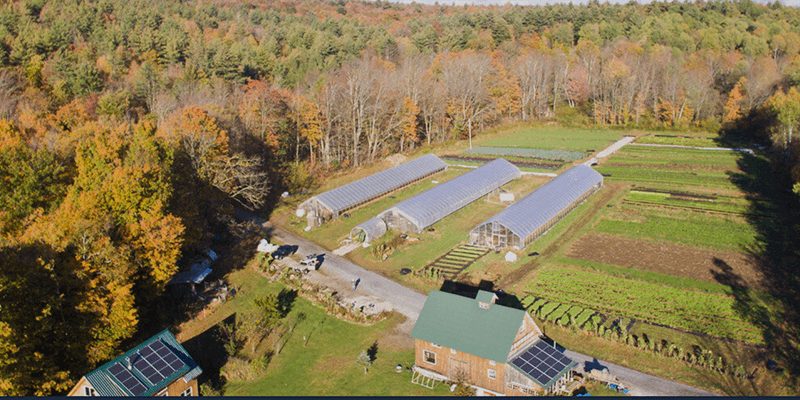The ultimate vision is to create a regional community in which people can ask questions of knowledgeable people engaged in the work of farming in changing climate, and bridge that gap between climate scientists and practitioners.
In January, 2021, 30 agricultural educators and farmers came virtually together to take the next steps forward towards climate resilience. And now, as they step into the growing season, they're also starting to test those plans out as members of the Climate Adaptation Fellowship.
The Fellowship ("CAF") is a partnership between the Farming & Climate Change program of the UVM Center for Sustainable Agriculture and the University of Maine School of Food and Agriculture, as well as the USDA Northeast Climate Hub and the Rutgers Climate Institute. It's a collaborative effort that put farmers' voices and needs right at its heart, and "provides farmers, foresters, and advisors with the information they need to adapt to climate change," by seeking, "to increase participant knowledge, and empower broad adoption of climate adaptation practices in the northeastern United States."
It's work that is both critical and complex. However farmers understand the changes they see on their land, all are affected by them. "We talk about resiliency, because every farmer is seeking that." says project collaborator, Farming & Climate Change Coordinator Joshua Faulkner.
Agricultural advisors are partnering with participating farmers to work together towards plans that address the farmers' identified priorities and needs. Together, they are completing assessments of the farms' climate risk and potential financial impacts, identifying the practices they want to implement and monitor, and also developed outreach plans for how they're going to share their findings with the world.
"We're here in an educator role, to ask questions, and steer them towards resources, and then they're off to the races for a year," says lead Principal Investigator Rachel Schattman.
"Some participants are trialing different approaches to understanding their nutrient needs (PSNTs), no-till strategies, and some are doing literature reviews. There's one group in Massachusetts who wants to understand the carbon sequestration potential of mulching. Another is exploring whether they can create heat capture systems that function as 'climate batteries,'" she continues.
The leadership team will be in the background, supporting the farmers and advisors throughout the growing season, and beyond. Rachel says, "We're hoping to be responsive to questions and provide resources on topics the teams are interested in. We want to both be driven by their curiosity and meet them there, and we're also practical and know that there are only so many hours in the day for farmers to do their work."
Leadership in the effort is also provided by the Erin Lane (USDA Northeast Climate Hub) and Marjorie Kaplan (Rutgers Climate Institute).
"Our angle," Rachel continues, "is about the power of raising questions in community, and how much can happen when people have people to ask their questions of."
The ultimate vision is to create a regional community in which people can ask questions of knowledgeable people engaged in the work of farming in changing climate, and bridge that gap between climate scientists and practitioners.
This material is based upon work supported by the National Institute of Food and Agriculture, U.S. Department of Agriculture, through the Northeast Sustainable Agriculture Research and Education program under subaward number ENE20-164-34268.
